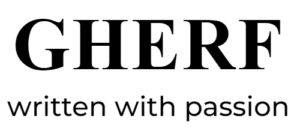The alarming increase in young adult cancer cases has sparked widespread concern among health professionals and researchers alike. Receiving a cancer diagnosis is a heart-wrenching blow at any age, but recent findings indicating an upsurge in cancer rates among young adults have set off alarms within the medical community. This emerging trend, which has baffled epidemiologists, has drawn attention due to its potential implications for public health and urgent need for investigation.
Unveiling the Surge: The Disturbing Rise of Young Adult Cancer
While researchers have been tracking this disconcerting phenomenon for a while, the need to stay up-to-date with evolving data remains paramount to discern whether the situation is improving or deteriorating.
Young adult cancer rates have seen a troubling increase in recent years, raising questions about the underlying factors contributing to this concerning trend. In the past year, a comprehensive analysis of global cancer data spanning three decades unveiled a troubling pattern: individuals under the age of 50 have experienced a steady increase in cancer diagnoses since the 1990s. The rise in young adult cancer cases underscores the urgency of addressing lifestyle factors such as obesity and the impact of ultra-processed foods on cancer risk.
Dr. Benjamin Koh, a distinguished physician-scientist hailing from the National University of Singapore, along with his colleagues, sought to delve deeper into this issue, focusing their efforts on the United States. Their meticulous analysis aligns with the international observations of growing cancer rates among young adults.The study has been published in JAMA Network Open and you can read it here.
However, the true gravity of this trend lies in the fact that cancers affecting younger demographics manifest differently than those seen in older adults. These disparities play a pivotal role in shaping treatment options, underscoring the urgency to comprehend the specific cancers affecting this age group.
Navigating Uncharted Territory: Exploring the Complex Factors Behind Young Adult Cancer Trends
Beyond its global significance, discerning the trends within specific populations is crucial to formulate effective public health policies and allocate research funds prudently. While age remains a significant risk factor for cancer due to its association with accumulating genetic mutations, a perplexing situation has emerged: cancer is increasingly targeting younger age groups, leaving experts perplexed.
While this unsettling trend is observable across various nations, the United States seems to bear the brunt of the surge in cancer rates among young adults. This unsettling rise can potentially be attributed to a complex interplay of factors including evolving dietary patterns, shifting lifestyles, sleep disruptions, escalating obesity rates, heightened antibiotic usage, and aggravated air pollution.
Unraveling these intricate trends is compounded by the fact that enhanced cancer screening initiatives may be detecting more cases, albeit hopefully at earlier stages, while vaccination programs also play a role in prevention.
However, a 2022 international review indicated that the escalation of early-onset cancers exceeds the effects of expanded screening programs, which often exclude individuals under the age of 50. While the present study does not account for these initiatives, it significantly contributes to the discussion by providing a comprehensive overview of cancer rates among those under 50 years old in the United States during the period spanning 2010 to 2019.
Dr. Koh and his team meticulously sifted through 17 interconnected data registries that meticulously documented fresh cancer diagnoses across diverse regions in the United States. This exhaustive effort enabled them to estimate the population-wide incidence rates over the decade leading up to 2019.
Incidence, in this context, pertains to the number of new cases diagnosed within a population during a specified timeframe.
Disturbingly, the data unveiled a concerning uptick in cancer incidence among individuals under 50, with an additional 3 cases diagnosed per 100,000 people in 2019 compared to 2010.
However, the story doesn’t end there. A closer examination of specific age brackets and varying cancer types provides a more intricate narrative, offering insight into underlying risk factors fueling this escalating cancer crisis.
“Gastrointestinal cancers have displayed the most rapid increase in incidence rates among early-onset cancers,” Dr. Koh and his team reveal in their published paper. Benjamin Koh’s pioneering research sheds light on the complex nature of young adult cancer, emphasizing the need for tailored prevention strategies and targeted awareness campaigns.
This category encompasses colorectal cancer, which emerged as the most prevalent form of gastrointestinal cancer among young adults in 2019, along with malignancies affecting the appendix, bile duct, and pancreas, all of which witnessed a surge over the examined decade.
Strikingly, even those in the age bracket of 30 to 39, seemingly at the pinnacle of their vitality, are not immune. Incidence rates for all cancers, particularly gastrointestinal cancers, have risen within this age group, even as cancer rates stabilized or decreased among older adults.
The escalating burden of gastrointestinal cancers corroborates findings from the aforementioned 2022 international review, recent data emanating from Australia, and multiple studies spanning continents. The role of diets rich in ultra-processed foods has surfaced as a potential culprit in this unsettling trend.
However, it’s crucial to bear in mind that the reliability of such studies hinges upon the quality of the data at hand. As Dr. Koh and his colleagues aptly point out, potential underreporting or underdiagnosis within underserved populations, such as Black individuals, could cast a shadow on these results. Thus, a cautious interpretation of these findings is warranted.
In essence, the rise in young adult cancer cases represents a complex and multifaceted challenge, one that demands unwavering attention from the medical community, policymakers, and individuals alike. By fostering a deeper understanding of the causes and patterns of young adult cancer, policymakers can formulate effective public health policies to ensure early detection, education, and improved outcomes for affected individuals.
As researchers strive to decipher the intricate factors driving this unsettling surge, the imperative remains to bolster awareness, advocate for early detection, and foster healthier lifestyles to mitigate the impact of this alarming trend.

